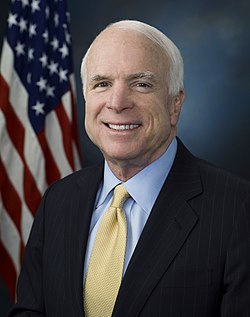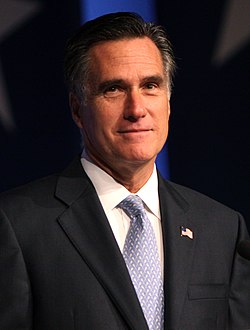| | |||||||||||||||||||||||||
| |||||||||||||||||||||||||
 County results John McCain | |||||||||||||||||||||||||
The New York Republican presidential primary was held on February 5, 2008 (Super Tuesday). There were 101 delegates up for grabs for the candidates. The delegates were awarded on a winner-take-all basis, which means the winner, Arizona Senator John McCain, received all 101 delegates for the 2008 Republican National Convention.
Contents
On February 2, McCain had held a fairly large lead in the polls above the competition with 35% as opposed to the next candidate Rudy Giuliani with 22.5%, who had announced a withdrawal from the race on January 30, 2008. [1]



